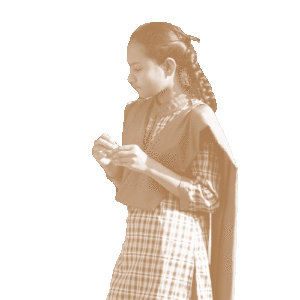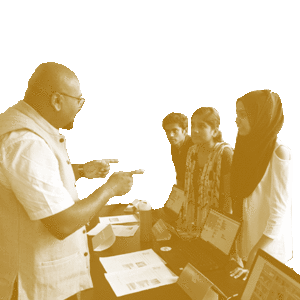Secondary Schools
The Secondary Schools program is implemented across 7 states and works to inculcate a STEM Mindset among young adolescents, using technology as a tool for problem-solving, challenging gender stereotypes and encouraging more girls to pursue STEM pathways. The program works in partnership with state education departments and 11 implementation partners.
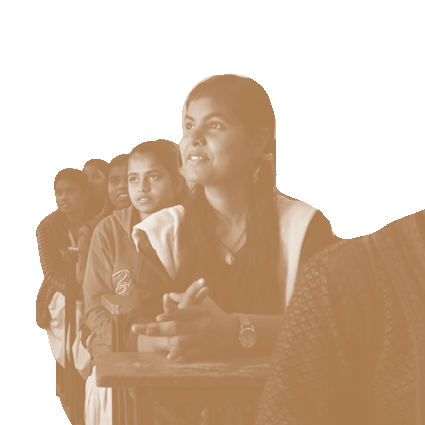
students reached across 7 states and 909 schools
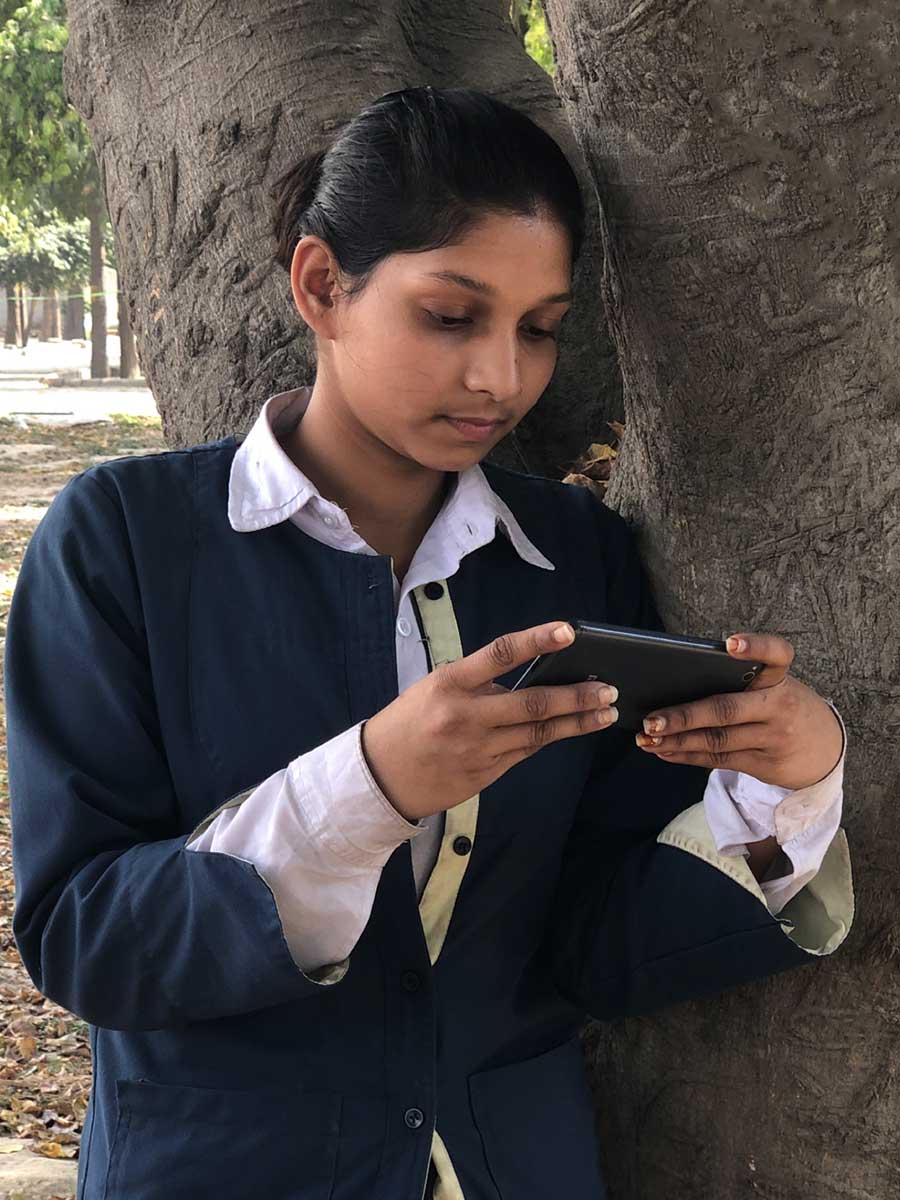
The interactive STEMinist chatbot helps students to learn how to code by simply scanning a QR code with a mobile phone
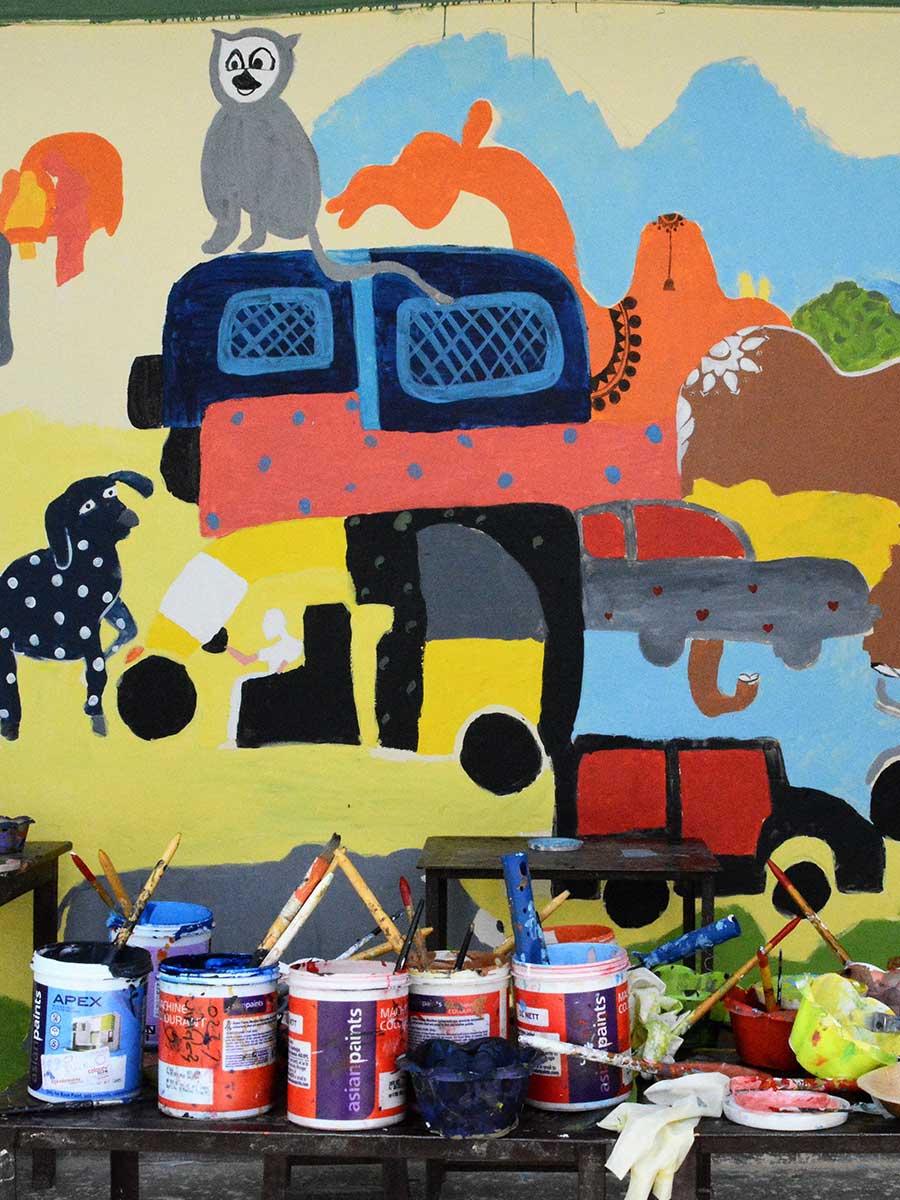
Nurtured a network of 11 partner organisations to further STEM mindsets and aspirations for young girls
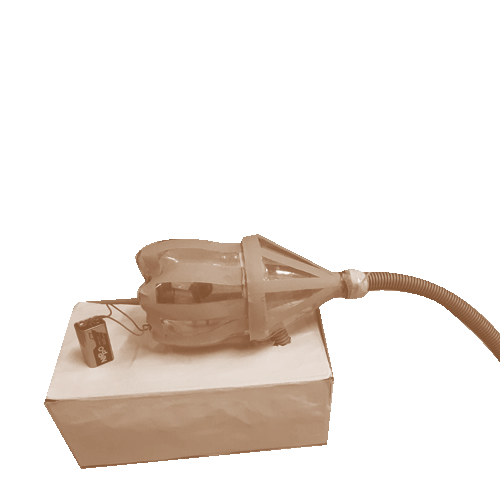
technology-based prototypes developed by students
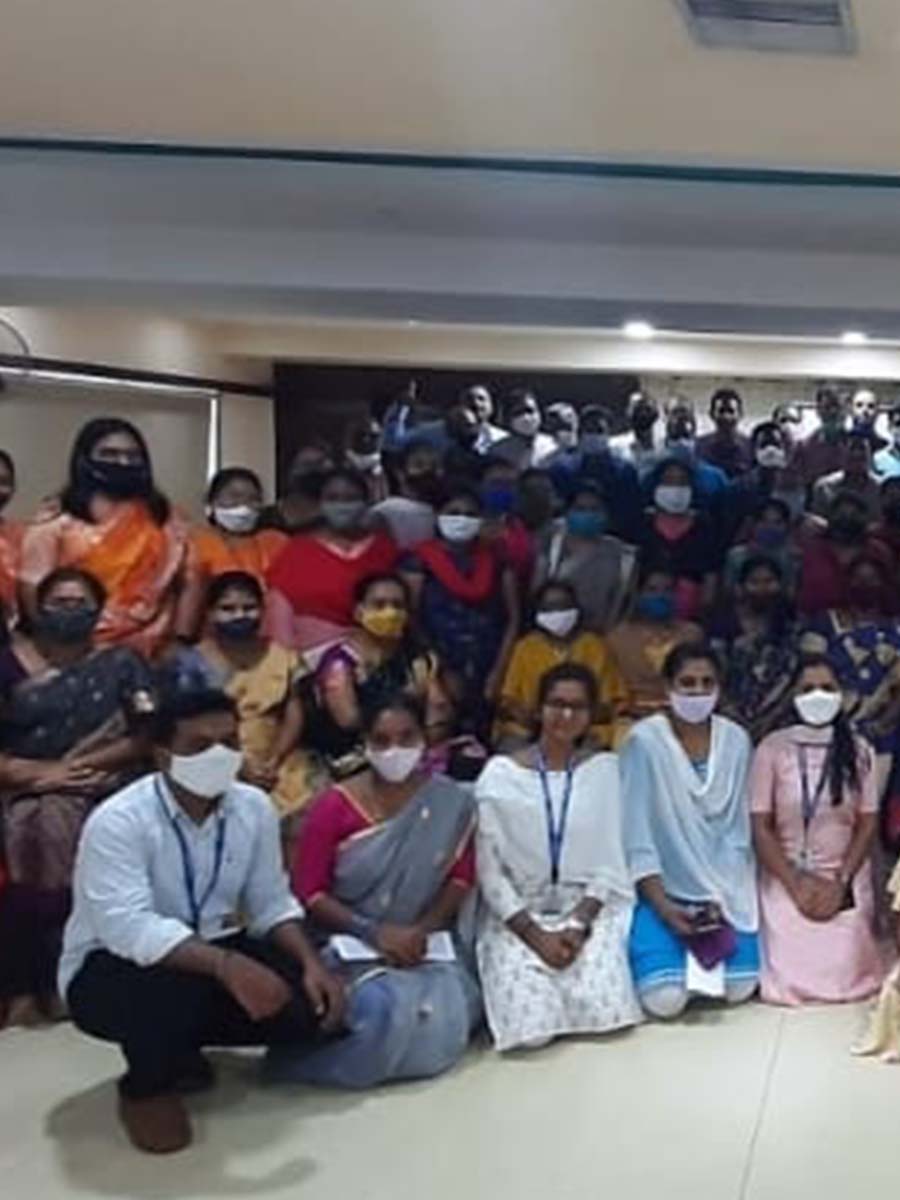
Across states, 80% of teachers consider STEM education essential to enhance critical thinking, making way for more female participation
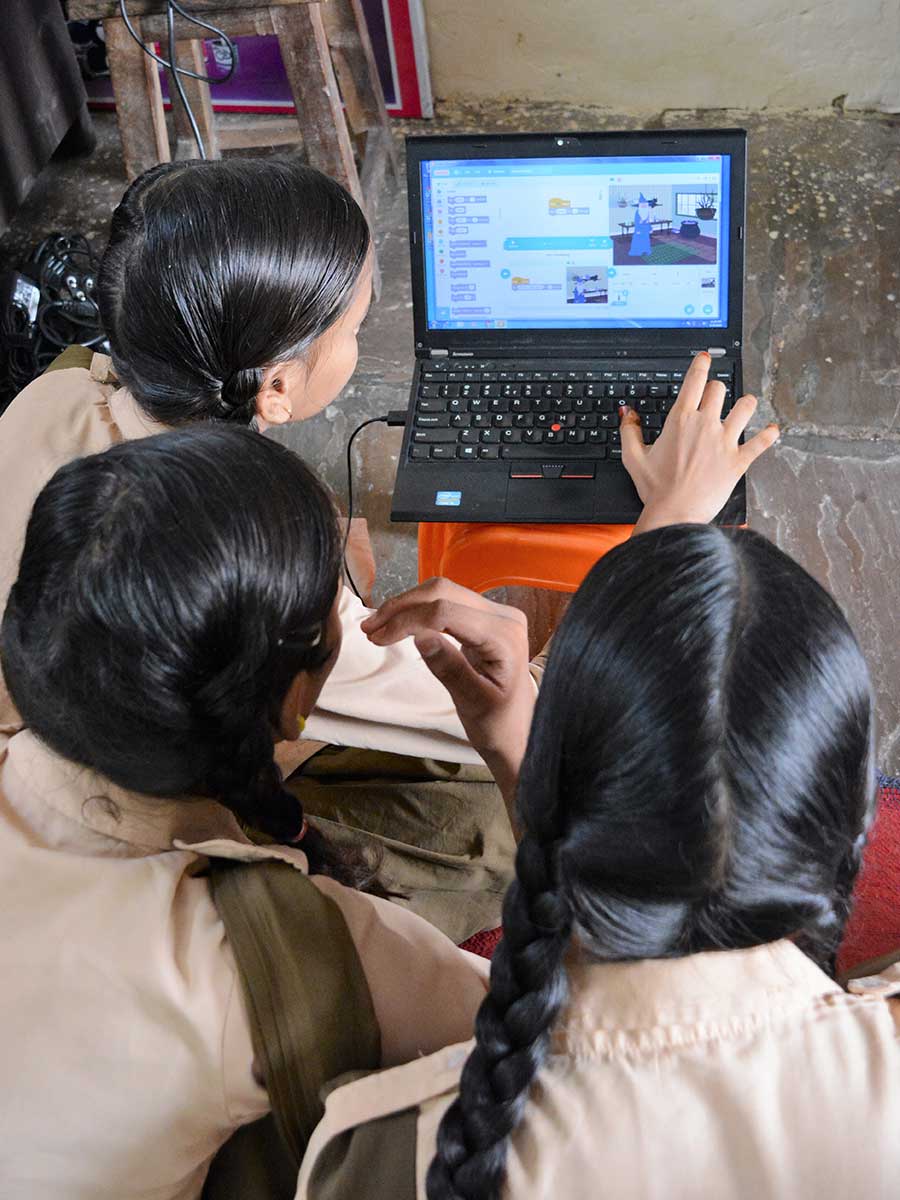
7000 educators trained with online tools through the program approach
Nurturing an enabling ecosystem by working with teachers and parents
In an effort to make parents allies in their child’s future aspirations, a ‘Kishor Kishori Mela’ was organised at Batemura village in Odisha. Discussions between adolescents and parents were facilitated on topics like career aspirations, gender and patriarchy, child marriage, child rights, and sexual and reproductive health. Work with teachers focused on empowering them to adapt to the sudden shift of online classrooms and teaching. This included training in 21st-century skills and online facilitation, as well as assimilating the differences between virtual and direct engagement with students and parents. Teachers were also trained in incorporating gender sensitivity into their interactions.
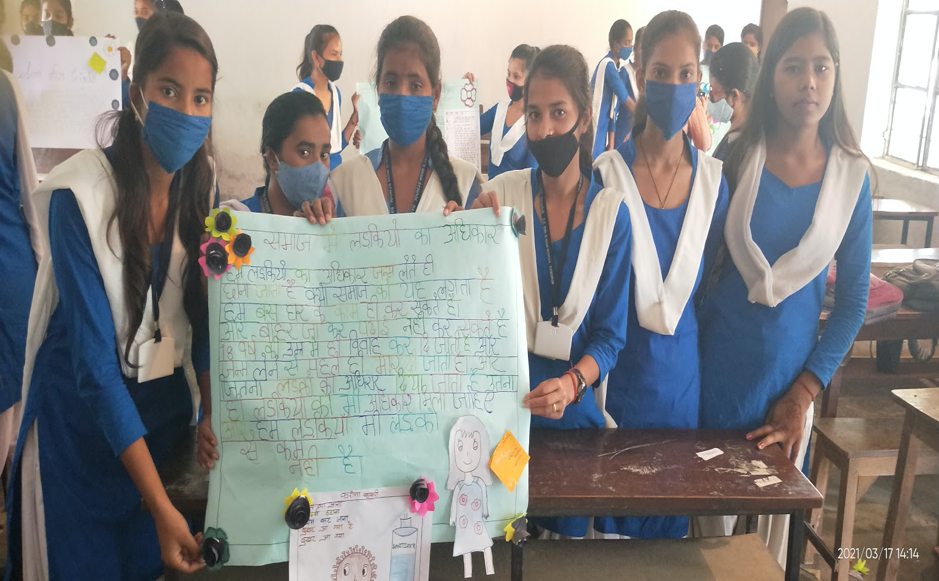
Students expressing their views on the need for gender equality
Building a STEM Mindset in a COVID-19 World
With the onset of the COVID pandemic, the programme pivoted to a blended learning model, while retaining its core objectives. Learning content was disseminated via WhatsApp and Integrated Voice Response System (IVRS), which helped strengthen community outreach. The Vidya HelpLine, a project of Nirmaan, provided academic and career information on STEM. Academic counsellors reached 12,000 students and parents through 28,000 phone calls. Learning Day sessions were organised to change the stereotypical perception of Science and Mathematics as difficult. Students also presented artefacts during the virtual showcase. Activities on topics such as ‘Equal rights for all’, ‘Girl power’, and ‘My power, my right’ were held. Webinars on child rights and safeguard laws were conducted to make children and parents aware of legal implications and recourse available in cases of child marriage and sexual harassment.
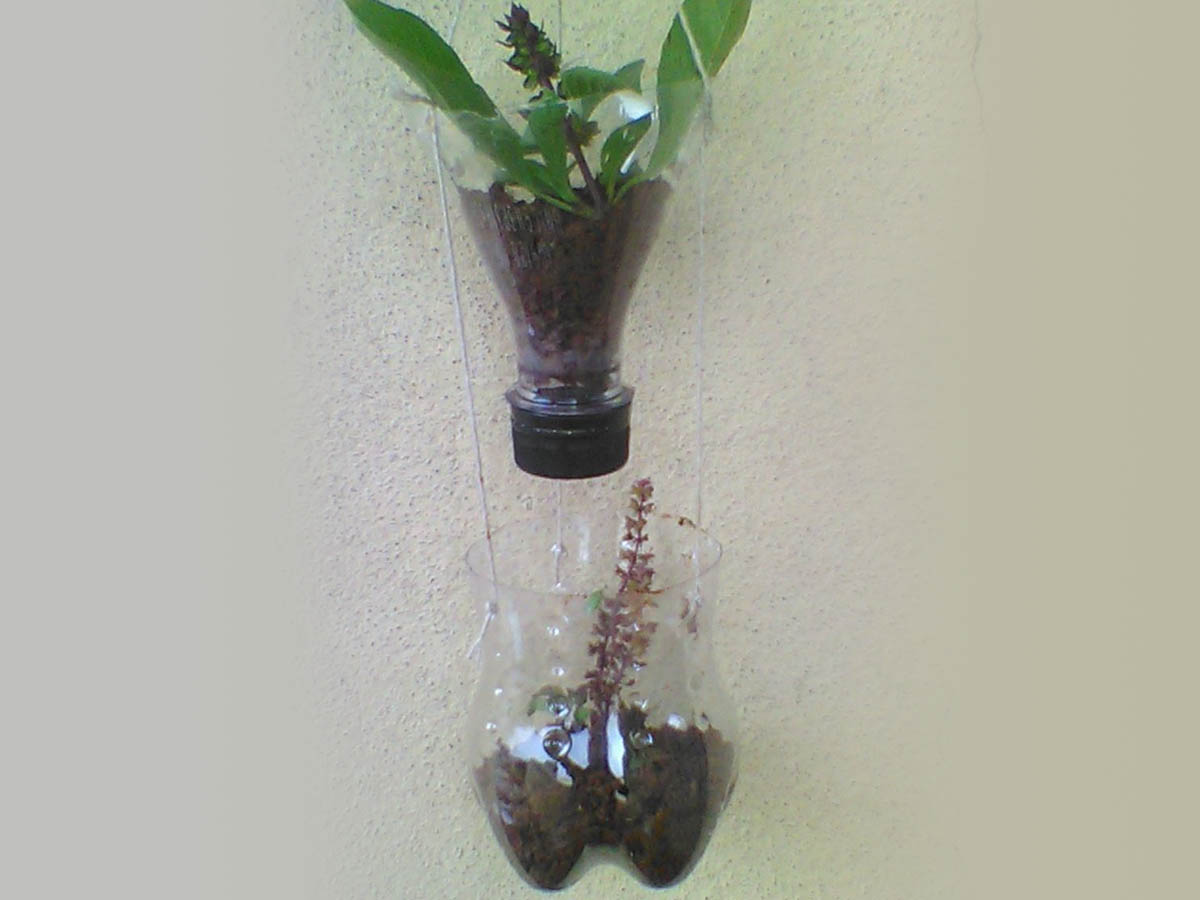
As part of Learning Days, students prototyped a bottle planter that is compact and reuses plastic.
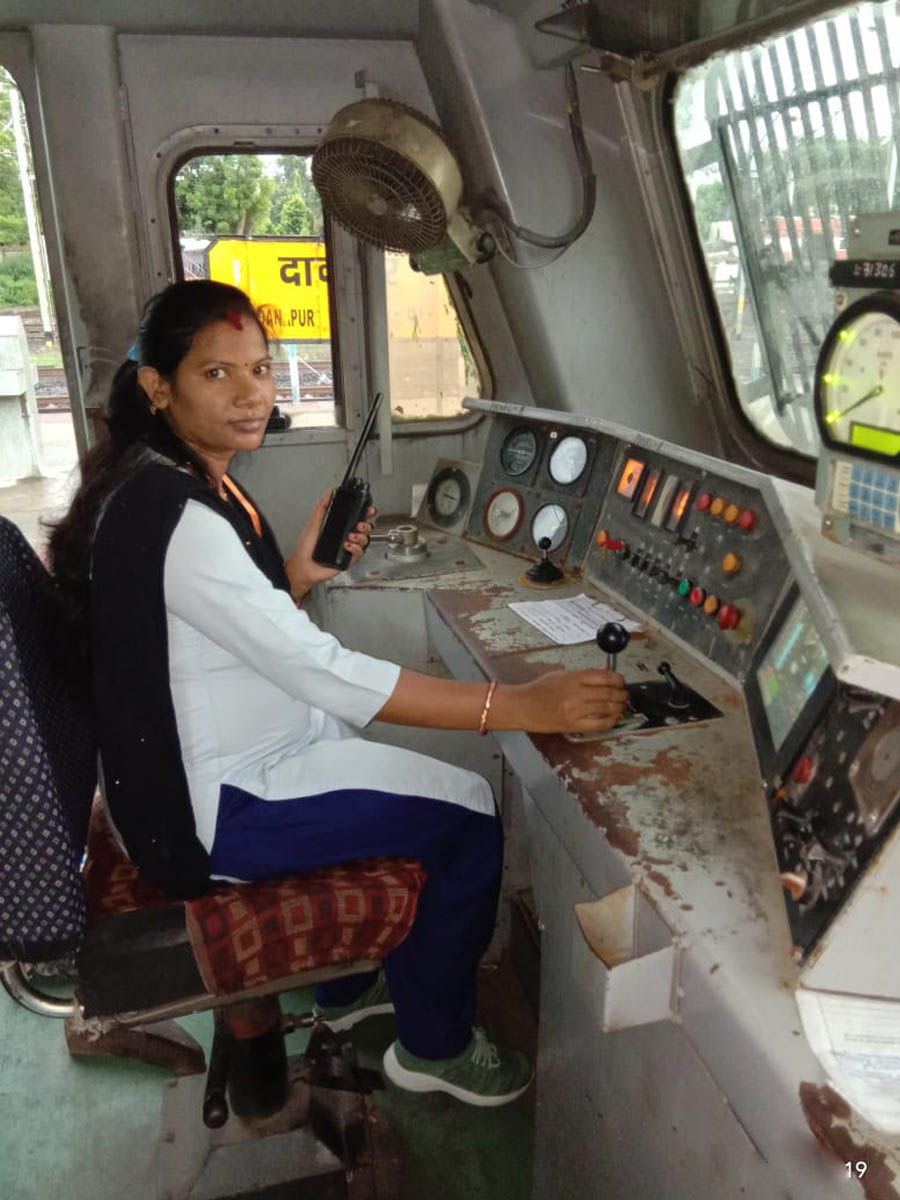
Ms. Babita Kiran, Loco Pilot in the Indian Railways shared her inspiring journey of challenging gender stereotypes and societal norms.
Expansion strategy and
partnership channels
After the success of the IBM STEM for Girls initiative in the last two years, the secondary schools program has expanded from 63 schools to 258 schools in Odisha, and from 64 schools to 140 schools in Assam with support from the state education departments. A key program objective is to build a state-led model in the coming year. Capgemini India has also partnered with the Secondary School program to implement the ‘MyCode’ project in 50 government schools across 5 states for a year. The programme will foster 21st century skills, a STEM mindset and career exploration skills needed to successfully navigate life and careers in over 10,000 students.
50 government schools across 5 states for 1 year
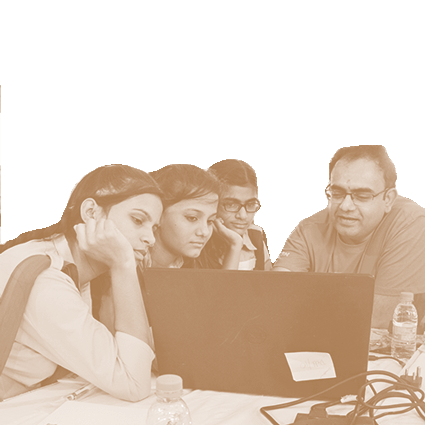
Creative innovations for Learning under Lockdown
As schools continued to remain shut, virtual hackathons were piloted in Karnataka, Telangana, and Odisha to encourage students to cultivate a STEM mindset. 90 students joined sessions for 6 weeks, creating 14 unique prototypes like a solar-powered kitchen chimney, a rice-destoner, and a self-operated dishwasher. A Chatbot was introduced as a broadcast tool for events, school news, classroom slots, and facilitator interactions. It answers chats and captures queries under a ticket for resolution via an outbound call. Implementation partner Vasundhara Foundation launched a STEM Club at the model school in Satlasana, Mehsana district in Gujarat to encourage girls to sharpen future-facing skills.
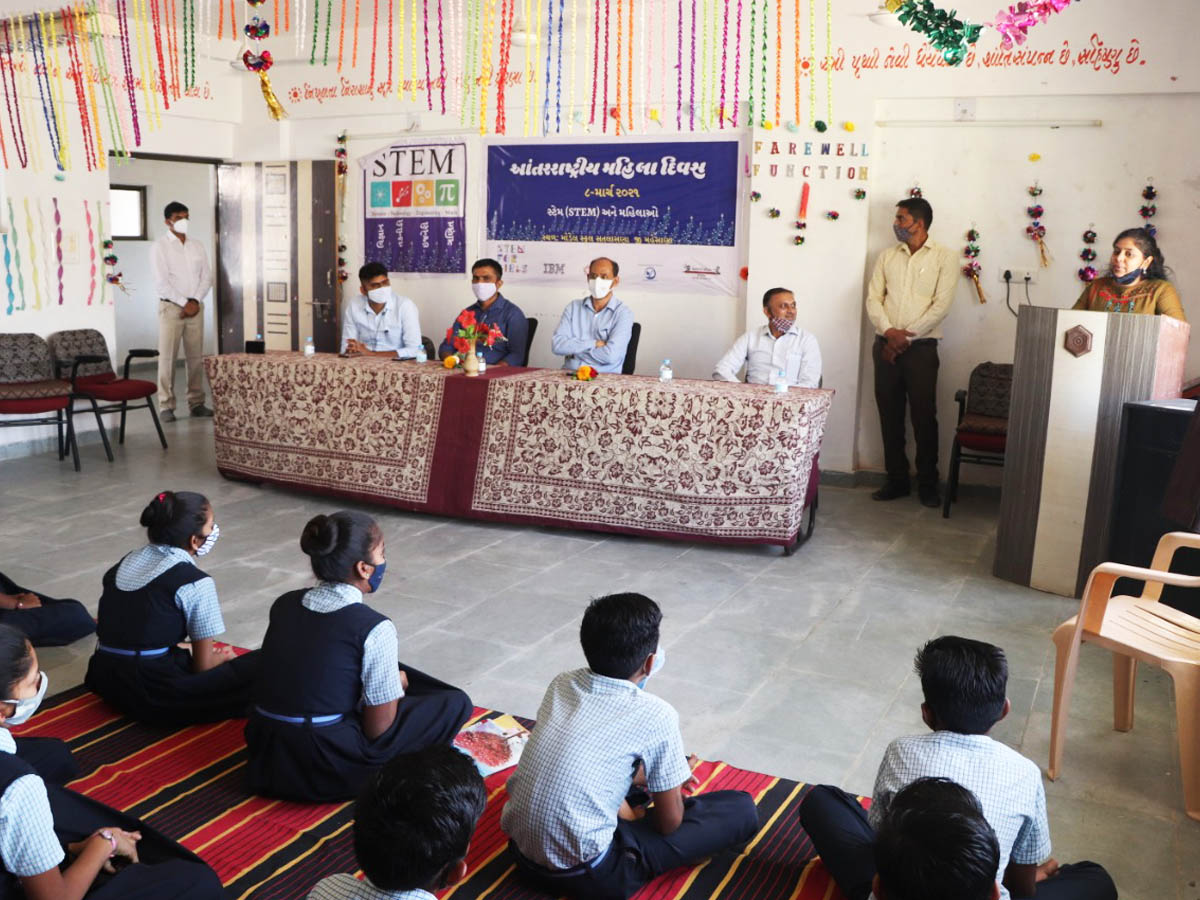
“With the help from my school facilitator, I was motivated to attend classes on STEM careers to understand STEM career opportunities. The RMI’s also helped me understand gender stereotypes that surround STEM more clearly, and this changed my mindset after interacting with these role models from a different background. I can now build my career in STEM.”
Smruti Smita, Class 9, Sri. Ganesh High School, Dhanupali, Sambalpur district, Odisha

